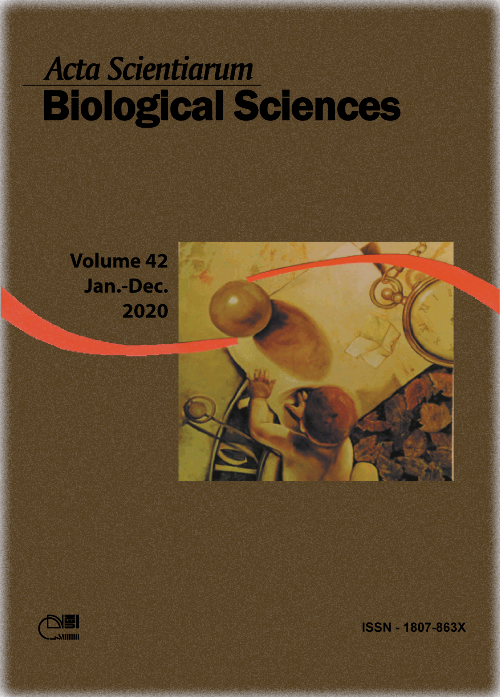Effects of microbial conditioning and temperature on the leaf-litter shredding activity of Phylloicus sp.
Resumo
Few studies try to explain the effects in tropical lotic ecosystems of an increase in water temperature on the shredding activity of invertebrate shredders, particularly in association with the quality of the leaf litter and the degree of litter conditioning. Therefore, the aims of this study were as follows: i) to better understand how this key invertebrate shredder group affects the decomposition of different species of leaf litter under gradual increases in temperature and microbial conditioning; and ii) to verify the possible consequences on leaf mass loss (LML). Three species of leaf litter were used in two experiments. In experiment I, the litters of three species (Protium spruceanum, Richeria grandis and Inga laurina) at three conditioning levels (1, 7, 14 days) were tested under five different temperatures (20, 22, 24, 26 and 28°C). In experiment II, the leaf litters of three species were used, without conditioning, under four temperatures (20, 22, 26 and 27°C). The shredding performed by Phylloicus sp. was largely dependent on the lignin and cellulose concentrations in each leaf species, independent of conditioning. The presence or absence of conditioning may cause the shredders to use different energy compensation strategies in response to the temperature increases.
Downloads
DECLARAÇÃO DE ORIGINALIDADE E DIREITOS AUTORAIS
Declaro que o presente artigo é original, não tendo sido submetido à publicação em qualquer outro periódico nacional ou internacional, quer seja em parte ou em sua totalidade.
Os direitos autorais pertencem exclusivamente aos autores. Os direitos de licenciamento utilizados pelo periódico é a licença Creative Commons Attribution 4.0 (CC BY 4.0): são permitidos o compartilhamento (cópia e distribuição do material em qualqer meio ou formato) e adaptação (remix, transformação e criação de material a partir do conteúdo assim licenciado para quaisquer fins, inclusive comerciais.
Recomenda-se a leitura desse link para maiores informações sobre o tema: fornecimento de créditos e referências de forma correta, entre outros detalhes cruciais para uso adequado do material licenciado.













1.png)




3.png)













